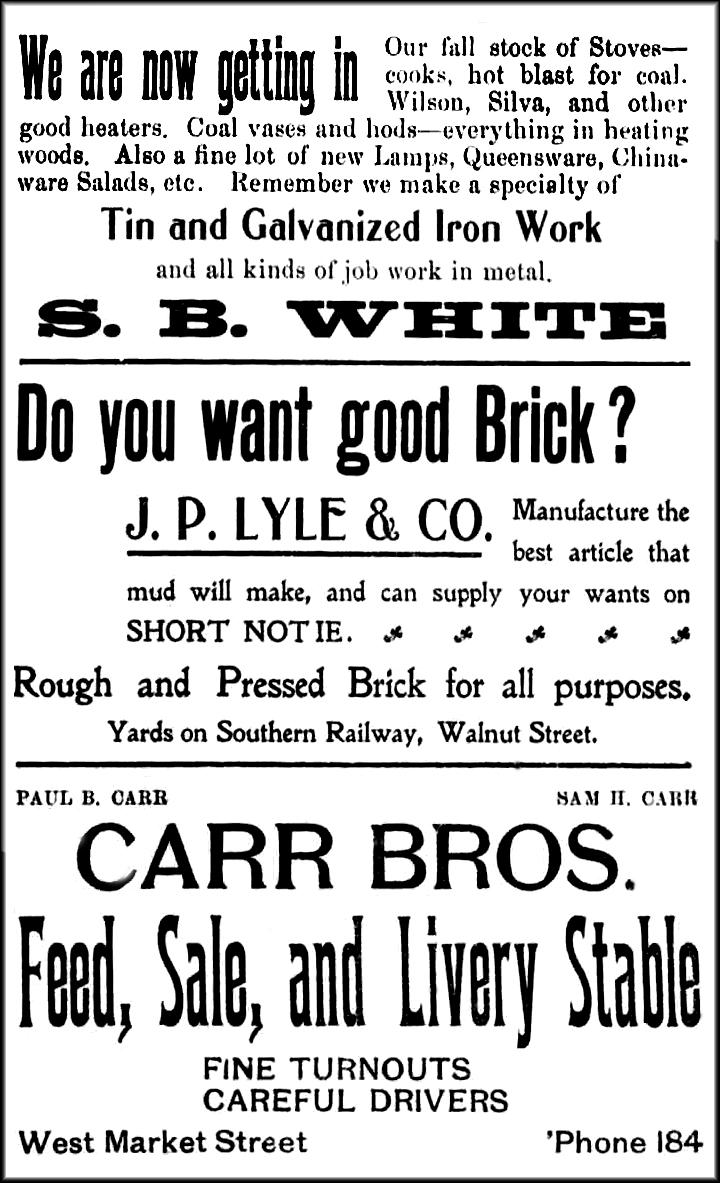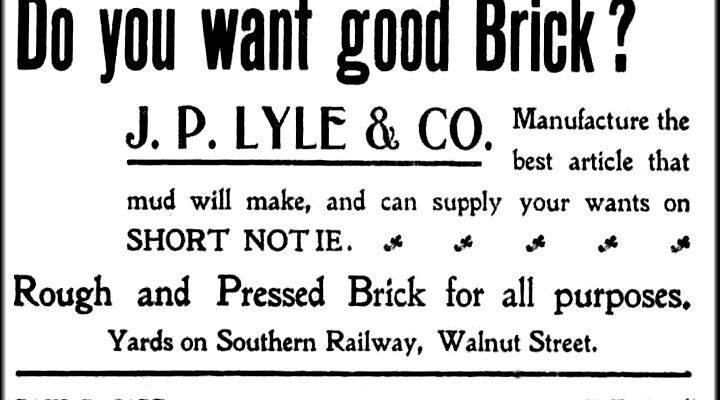The eye-catching news in a local Feb. 28, 1903 newspaper was bold and to the point: “Beginning March 1st, Johnson City will be in total darkness.” It seems that on that day the contract with the Electric Light Company for street lights expired, leaving a new contract pending. The city population that year was about 5,000.
In the meantime, the lights continued to burn with the understanding that a new contract had been established to fix the price. At a meeting of the board on that Wednesday night, an effort was made to come to an agreement on a new contract with a Mr. Stratton, who represented the light company.
Stratton desired a contract for five years at $80 a lamp per year. However, if the city would utilize seven additional lamps, he agreed to cut the price to $75 a lamp per year. The city wanted to pay $75 for the present number of lamps, but if seven more were added, they agreed to cut the price to $72.
The city's light committee convened and issued two proposals, the majority favoring Mr. Stratton's contention, but the minority report made by Alderman Mathes carried the vote. That one was based on a clause in the original franchise contract that specified that “the price charged shall not exceed the price paid in Knoxville, Chattanooga and Bristol.”
The average, Mr. Mathes figured, would be $84 for 2000 candle power lights based on an all-night schedule. Conceding that 200 lights or more could be furnished more cheaply per light than 40, it was agreed that Johnson City would accept 1200 candle power lamps instead of 2000.
To further cheapen the cost of lights, the “moonlight schedule” was accepted and thus saved 40 per cent of the price, but Mr. Mathes said he agreed to deduct only 20 per cent, and this would make the average price $66.

Johnson City Ads from Feb. 28, 1903, Same Timeframe for City Going Dark
Trying to agree on a contract, he kept going up until he reached $72 and finally $75. Mr. Stratton emphatically stated that his company could not furnish the lights at that price and the board adjourned with plans to reconvene the following Thursday evening to further address the matter.
The issue was again brought up and finally disposed of by tabling the committee's report and notifying Mr. Stratton that the street lights would be paid for each month on the old rate of $85 until the matter was otherwise disposed of.
Regrettably for the city, the offer was not satisfactory and the following brief telegram told the final chapter: “Coeburn, Va., Feb. 28, 1903. To: J.W. Crumley, Major Johnson City: Have wired to discontinue street lights on and after March 1st. As much as this is regretted, we can not furnish lights without some definite agreement for compensation. Signed, F.A. Stratton.”
This failure of both parties to compromise created a strong current in favor of the city maintaining its own plant. As a result, the board appointed a committee to travel to Morristown to investigate their plant. However, unlike Johnson City, the Morristown plant was owned by the city. The committee drove there the following Wednesday, obtained all the facts and figures and made a report at the next meeting of the board.
If a plant was to be built in Johnson City, the present legislature would be asked to pass an act authorizing the city to issue bonds for that purpose. In the meantime, residents of Johnson City were deprived of nighttime street lights, something they had gotten used to, for an undetermined amount of time.

Comments are closed.